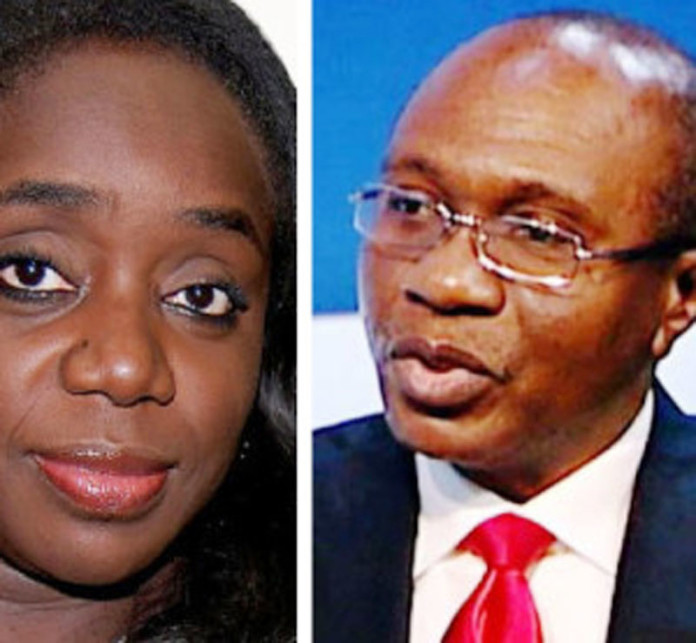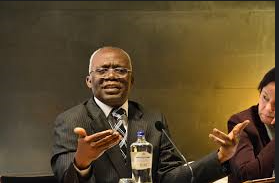On Thursday, August 24, the bigwigs of Nigeria’s security architecture met in Abuja with senior journalists.
The meeting had been postponed on several occasions, because of President Muhammadu Buhari’s three-month medical tourism in the United Kingdom and mounting security challenges at home.
But when it finally held, rather than squarely address the mounting security challenges and growing separatist agitations, it brought to the fore the ugly fissure in the relationship between the security agencies and the Economic and Financial Crimes Commission (EFCC) headed by Ibrahim Magu.
A harmless question from an editor to the Director General of the Department of State Services, Lawal Daura, over the lack of cooperation and the personality clash in his relationship with Magu drew “fire and fury” from Daura that left the journalists literally scampering for cover.
Daura accused Magu “of making spurious claims of discovering huge sums of money,” wondering why journalists have never asked for evidence to authenticate those claims.
“Have you ever asked to see the evidence of his (Magu’s) wild claims? You won’t because you believe his lies.”
To say that there is no love lost between Daura and Magu is to say the obvious. But perhaps much more worrisome is the frosty relationship between Magu and the Attorney General of the Federation and Minister of Justice, Abubakar Malami.
On Wednesday, August 30, Magu picked up the gauntlet by sending a direct riposte to Daura’s poser when he presented EFCC’s scorecard to journalists in Abuja.
He claimed that the EFCC recorded tremendous success particularly in assets recovery between January and August 2017 despite challenges.
Magu recounted that “two days ago, we got the court to forfeit to the Nigerian government a sum of N7.6 billion which was hidden in a Nigerian bank by former Petroleum Resources Minister, Diezani Alison-Madueke.
“Two weeks earlier, another court issued a temporary forfeiture order to seize properties worth $21,392,224 belonging to the same former minister. Those properties are awaiting final forfeiture.
“Over a month ago, the Commission recovered over N329 billion from a group of oil marketers for the Nigerian National Petroleum Corporation.”
Breaking down the figures, Magu disclosed that the EFCC recovered in the last eight months
- N409, 270, 706,686.75
- $69, 501,156.67
- 231,118.69 pounds
- Euro 610,816.20
- Dirham 443,400
- SR70, 500
If this is true, then EFCC has recovered almost N500 billion, about seven per cent of the 2017 budget. A huge amount of money.
The question many Nigerians are asking is what the government is doing with this colossal sum if these claims of recovery are indeed true. Where are the recovered funds being channeled?
In a country with such huge and scandalous infrastructure deficit, N500 billion will definitely come in handy.
These questions are even more germane today given the fact that the previous governments have not been able to give account of what was done with the recovered “Abacha loot.”
In fact, many Nigerians suspect the returned loots were simply relooted by those in power and the vicious circle of corruption continues.
The first step to openness is to disclose publicly those from whom these humungous sums were recovered. Aside Alison-Madueke, who else is involved in this heinous crime? Why is the government averse to naming and shaming the culprits?
If Magu is to be believed that the EFCC had indeed recovered these funds, he must go beyond reeling out figures and provide concrete evidence of where these funds are warehoused.
Otherwise some are bound to believe Daura that the claims are mere political gimmicks meant to wheedle the unwary and keep Magu in office.
It also behoves citizens to demand accountability from their elected governments. The fight against corruption must go beyond mere razzmatazz and grandstanding.
If indeed the government is winning the war against corruption, the people whose patrimonies are stolen must benefit when such monies are recovered.
The only way to do this is to ensure the government consciously channels such funds to those necessities – education, healthcare, power, roads, et cetera – which the funds were meant for in the first place before they were looted.













